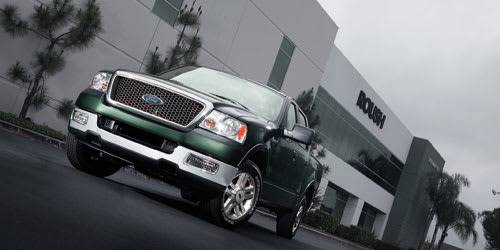Propane’s Role in Modern Vehicles

Propane is making significant strides in the automotive sector, offering a cleaner, more efficient alternative to traditional fuels. This article explores how propane is innovating vehicle technology and what this means for the future of transportation.
Propane as an Alternative Fuel
Propane, also known as liquefied petroleum gas (LPG), has been used as a vehicle fuel for decades. Its low carbon and particulate emissions compared to gasoline and diesel make it an attractive option for reducing one’s environmental impact. Propane-powered vehicles emit up to 30% less carbon dioxide and significantly lower amounts of other harmful emissions.
Technological Advancements in Propane Vehicles
Recent advancements have improved the efficiency and convenience of propane vehicles. Modern propane systems are equipped with liquid injection technology, which serve to enhance both performance and fuel efficiency. These systems allow for smoother operation and better cold-starts, making propane vehicles a solid competitor to their gasoline counterparts.
Cost-Effectiveness
Propane is notably less expensive than gasoline and diesel, due in part to lower taxes and the wide availability of domestic supply. This cost advantage, combined with the longevity of propane engines due to their clean-burning properties, presents significant savings in terms of operational and maintenance costs.
Refueling Infrastructure
One of the challenges of expanding the use of propane vehicles has been the limited refueling infrastructure. However, recent initiatives aim to increase the number of propane refueling stations. This expansion is supported by both private investments and government grants, enhancing the practicality of choosing propane for personal and commercial use.
Adoption in Commercial Fleets
Propane is particularly popular in commercial fleets, including school buses, taxis, and delivery trucks. Companies are incentivized to switch to propane not only because of lower fuel costs but also due to grants and subsidies available for alternative fuel vehicles. The reliability and reduced engine noise are additional benefits that suit commercial operations.
Innovations in Hybrid Technology
Hybrid propane-electric vehicles are emerging as a promising innovation, combining the environmental benefits of propane with the efficiency of electric technology. These hybrids offer extended range and reduced emissions, addressing the range anxiety that is often associated with fully electric vehicles.
Global Market Adoption
While propane vehicles are more common in countries with developed LPG markets like South Korea and Poland, interest is growing globally as countries seek to meet stricter emission standards. Manufacturers worldwide are developing more propane models in response to increased demand for sustainable vehicle options.
Future Prospects
Research continues in making propane an even more sustainable option, including the development of renewable propane produced from biological sources. This innovation could further decrease the carbon footprint of propane vehicles and will align well with global sustainability goals.
Conclusion
Propane’s role in the automotive sector is evolving, driven by technological advancements and a growing recognition of its environmental and economic benefits. As the industry continues to innovate, propane stands as a key player in the drive towards cleaner, more sustainable transportation solutions. This ongoing evolution offers numerous opportunities for businesses and consumers alike to participate in a greener automotive future.













